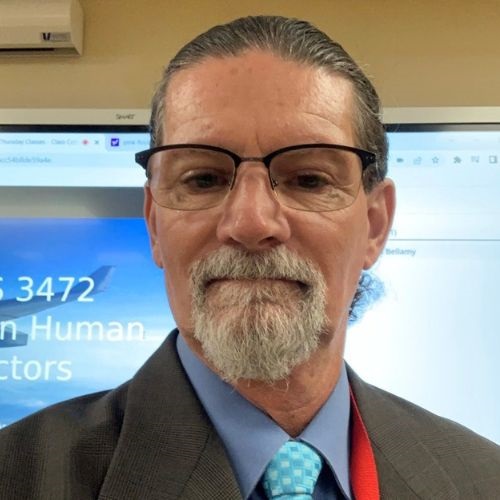Doctor of Philosophy (PhD) in Astronautical Engineering
Earn a doctorate degree in astronautical engineering and be at the forefront of technological space advancement and system development.
The aerospace and astronautical industry is a specialized and growing field focused on space research and exploration. Initiatives to launch spacecraft, telescopes, satellites, space stations, and other important equipment are growing, and efforts are increasing to expand human knowledge to benefit the future of our planet. Experienced leaders in spacecraft engineering, national defense, data analysis, and space education will find opportunities within both the public and private industry. Innovative approaches are needed to advance methods in space exploration and tourism, science and research, efficiency, global initiatives, cybersecurity, and system maintenance.
The PhD in Astronautical Engineering is for new graduates and non-traditional students experienced in aerospace engineering and astronautical engineering personnel who desire to advance their careers by gaining leadership skills and research experience in the space, engineering, and astronautical field.
Graduates with a PhD in Astronautical Engineering can pursue opportunities for technical, executive, and senior-level positions in commercial companies as well as local, state, and federal government, such as:
- Director of Astronautical Facilities
- Astronautical Engineer
- Researcher
- Aeronautical Developer
- Astronautical Engineering Consultant
Students will pursue a deep proficiency in this area using interdisciplinary methods of rigorous coursework taught by industry leader-faculty. Graduates will contribute significantly to the Astronautical Engineering field through the creation of new knowledge and ideas.
As your PhD progresses, you will move through a series of progression points and review stages with your academic advisor. This ensures that you are engaged in a process of research that will lead to the production of a high-quality Thesis and that you are on track to complete this in the time available. Following submission of your PhD Thesis you will have an oral presentation assessed by an external expert in your field.
Why Capitol?
Expert guidance in doctoral research
Capitol’s doctoral programs are supervised by faculty with extensive experience in chairing doctoral dissertations and mentoring students as they launch their academic careers. You’ll receive the guidance you need to successfully complete your doctoral research project and build credentials in the field.
Proven academic excellence
Study at a university that specializes in industry-focused education in technology fields, with a faculty that includes many industrial and academic experts.
Partnerships with leading industries
Research collaborations and partnerships with NASA and the Royal Aeronautical Society (RAeS) provide students with the opportunity for international networking, resources, and professional development.
Learn around your busy schedule
Our PhD in Astronautical Engineering is offered 100% online with no on-campus classes or residencies required, allowing you the flexibility needed to balance your studies and career.
Career Opportunities
Market demand for astronautical engineering professionals
Get the necessary credentials to take on a leadership role; become a researcher, speaker, author, or trusted expert; or enter higher education as a teaching professional.
A degree that meets the needs of an emerging industry
Graduates will contribute significantly to the astronautical engineering field through the development of innovative approaches in research.
Degree Details
This program may be completed with a minimum of 60 credit hours. The student will produce, present, and defend a doctoral dissertation after receiving the required approvals from the student’s Dissertation Committee and applicable Review Boards.
Prior Achieved Credits May Be Accepted
Tuition & Fees
Tuition rates are subject to change.
| Fall 2025–Summer 2026 | Fall 2026–Summer 2027 | |
|---|---|---|
| Tuition (per credit) | $970 | $980 |
| Military Servicemember Tuition (active duty, per credit) | $875 | $875 |
| Military Servicemember Tuition (retired, per credit) | $925 | $925 |
| Information Technology Fee (per credit) | $45 | $55 |
| Application Fee (waived for Capitol Tech master's graduates) | $100 | $100 |
High School and Community College full-time faculty and full-time staff receive a 20% discount on tuition for doctoral programs.




